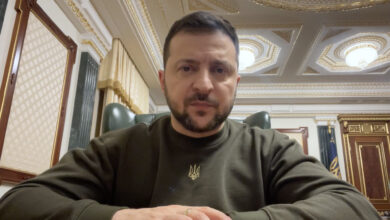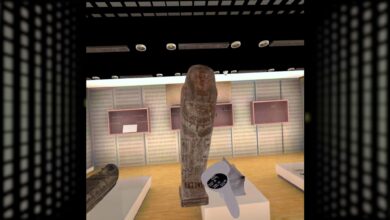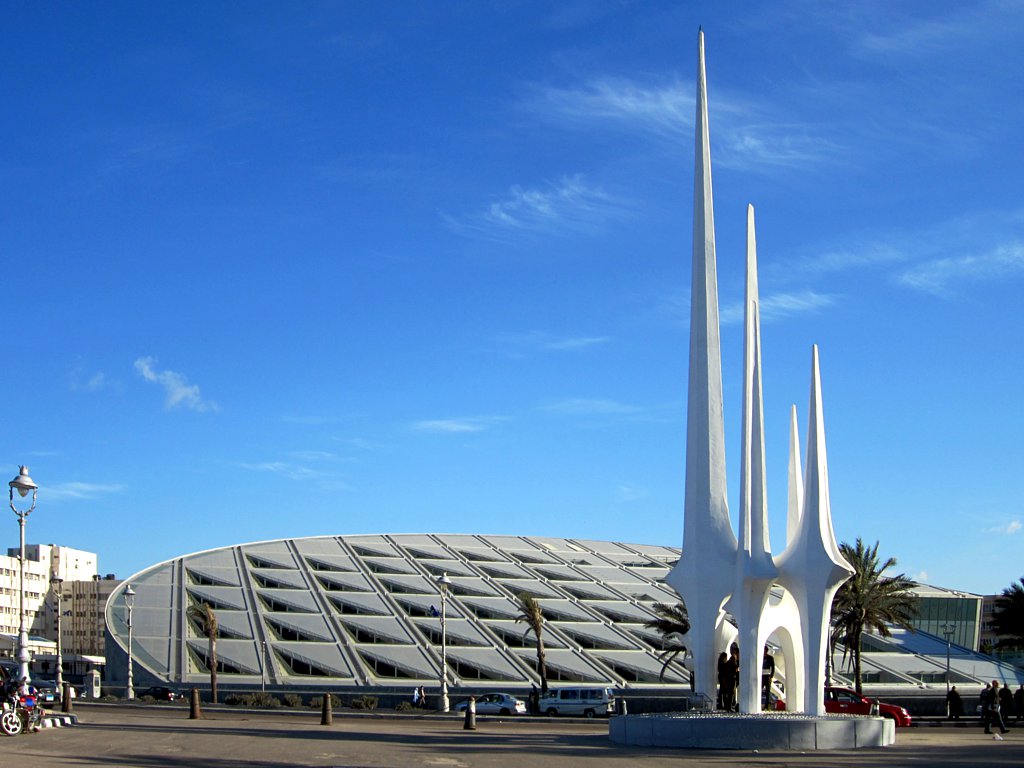Dar al-Kotob, the Egyptian National Library, is sometimes lost in the shadow of the National Archives, or forgotten behind the shining facade of Bibliotheca Alexandrina. The library is home to a wide range of valuable collections, but there is much work to be done to preserve, organize and present the library’s collections to the public.
Zain Abdul Hady, a specialist in information science and former chair of the Department of Libraries and Information at Helwan University, took over as director of Dar al-Kotob a little over a month ago and hopes to bring increased public attention to the somewhat neglected institution. He sat down with Al-Masry Al-Youm to discuss his plans for the library.
Al-Masry Al-Youm: Since you became director, what do you feel is going well with the library in general, and where is there room for improvement?
Zain Abdul Hady: All government cultural institutions in Egypt suffered under the past regime. Culture was not a top priority, and I think Dar al-Kotob itself was a low priority for the government. Minister of Culture Emad Abu Ghazi and Mohammed Saber Arab, Director of the National Library and Archives, have put in a lot of effort over the past years to make the National Library and Archives one of the best in the world. But that has not happened the way they wanted. We are lacking in budget, strategy and a lot of things.
Al-Masry: What are some of the most pressing problems?
Abdul Hady: I am now developing a strategy for the years 2012 to 2016.
We have 4 million volumes, 1.5 million titles and more than 250,000 manuscripts. Our collections are marvelous, but information about these collections is not available to researchers. We have an online catalogue with 750,000 searchable titles. We are in the process of completing this catalogue. It should be finished in the next five years.
Al-Masry: What are the main elements of the strategy you are developing?
Abdul Hady: I would like to focus on the sustainable development of the library’s human resources. We also need a department for marketing. I would like us to increase cooperation with the Nile countries as well as big national libraries around the world, like the [American] Library of Congress, the Australian National Library, the Spanish National Library and the three national libraries in Italy.
We have a great variety of collections and many things that people do not know about. For example, we have recordings of Sayed Darwish and other Middle Eastern singers from the 19th century. We also have a very big collection related to the royal family. We have albums of photographs from all over Egypt and drawings of every building in Egypt before 1952. They are not published, and we need to publicize them. We are working on rebuilding our website to reflect this collection, and we hope that in six months we will have the website finished.
But we need a lot of publicity. Over the last 10 years when Saber Arab was in charge of the library, he did a lot of things, but no one was interested in advertising or publicizing the collection.
Al-Masry: Do you cooperate with Bibliotheca Alexandrina?
Abdul Hady: Yes, we began cooperating in the area of manuscript restoration, services and information exchange and in some international conferences. But it is important to understand that their role in Egypt is different from ours. Bibliotheca Alexandrina is an international library, not an Egyptian library. We are the Egyptian National Library and we have a specific function, different from theirs.
The first priority of Dar al-Kotob is preserving Egyptian knowledge. This is the role of all national libraries in the world. The second priority is to help researchers. But the first priority is to protect and restore the history and knowledge of Egypt.
Al-Masry: People have concerns that there are a lot of materials at Dar al-Kotob that require certain permissions and bureaucratic procedures to obtain access. Are you interested in increasing ease of access where possible?
Abdul-Hady: Bureaucracy is everywhere, because you have to protect your collection. We cannot leave the manuscripts in the hands of the researchers. To deal with this we are trying to make digital copies of the full text of all manuscripts.
But the other problem is that the reading rooms are separate from the bookshelves. The open shelves are maybe 5 percent of the collection. If someone wants a title, he has to refer to a librarian, who will search for the availability of the title, and then retrieve the book from the closed shelves. We used to get a lot of complaints about the wait time for a book, but now we have it reduced to 15 to 20 minutes. That is normal for any national library.
Even so, some people do not understand the rules for getting books from the shelves or the role of librarians. I am working on making some brochures for readers so they can know the procedures for obtaining books.
Al-Masry: How is the digitization of the manuscripts progressing? Are some available now?
Abdul Hady: We have a digitization project that is separate from what the National Archives is doing with IBM. We have 250,000 manuscript titles in our collection, and we have only digitized about 10,000. We started seven years ago, and if we continue at the same pace we will not finish digitizing the collection for another 25 years. But we are preparing a lab for digitization with many digital scanning machines. We need 100 people to work on this project exclusively. If we can begin this properly in 2012, I think we can finish in 2016.
Then it will be accessible only from within the library. We are talking with some lawyers to see what the rules are to eventually make the digital collection available and open on the internet.
Al-Masry: Does Dar al-Kotob produce publications of its own?
Abdul Hady: We have been publishing books here for a long time. Right now we are publishing a series of books written over the past 100 years about freedom and revolution in Egypt. We have published about 15 titles since March, when we started this project. Our regular publications include indexes of periodicals and bibliographies of Egyptian writing. We have a wide variety of publications, but again, the problem is that nobody knows about them.
Al-Masry: What is your interaction with the security apparatus? What kind of government oversight do you experience?
Abdul Hady: Right now, we do not feel there are any limitations. But before [the revolution] it was necessary to work as the government wanted you to work. Let history judge the previous government. We have to make a new history for Egypt because we deserve better. That is my theme and my slogan for the next stage for Dar al-Kotob.




